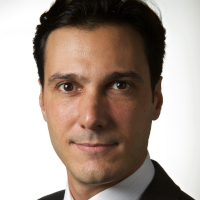-
Get the latest news! Subscribe to the ifa bulletin


The proposed changes to ASIC's funding model is essentially backdoor taxation
In response to the Financial System Inquiry, the government is set on a course to introduce a user-pays system that can generate about $300 million in revenue to directly fund the Australian Securities and Investments Commission.
But beware: wolves sometimes come in sheep’s clothing. And this plan is essentially backdoor taxation.
The sugar-coated proposal to directly charge an industry — as if every day Australians would be spared any cost — is misguided and opportunistic.
Although there is nothing wrong with a user-pays system per se, the new proposal does not have checks and balances to future regulatory costs and charges.
Moreover, it is silent about what happens to the current government-backed funding dollar savings — although most certainly they will not be coming back to taxpayer pockets.
A system with proportional charges is, in principle, an equitable and efficient response. Charging more to those who use more is not only just, but well ingrained in the Australian ‘fairness’ tradition.
Additionally, a direct fee charge on users generally leads to non-wasteful use of resources, avoiding free riders.
But in this form, the new ASIC funding model is plainly taxation in disguise, without addressing the perils of increasing regulatory costs in terms of compliance and fee charges.
Currently, the government recovers only a small proportion of ASIC’s costs directly from industry participants, through the Financial Institutions Supervisory Levies, application fees and fees for market supervision. This revenue system was condemned by both the Wallis and Murray Inquiries, claiming that ASIC should be industry fully-funded.
The best approach, however, would be a balanced mix of industry and government funding in order to avoid excessive deadweight losses in Australia’s financial services. A sole user-pays system would unduly penalise the industry to collect this new tax.
According to the new user-pays system, banks, financial advisers and brokers will be hit hard, covering almost all ASIC’s costs, which last financial year alone included $131 million to regulate AFS licensees — although only collecting a tenth of this amount in direct fees.
Logically, the Industry is not happy about the direct charge.
Steven Münchenberg, Australian’s Bankers Association’s chief executive, warns that the purpose of regulation is to benefit the wider community, and therefore, taxpayers must pay their share.
Ironically, ABA’s advice will be fulfilled even if the user-pays system is introduced. That is, in the end, taxpayers are the ones effectively funding the extra revenue in the form of higher fees, lower deposit rates or higher interest spreads. And worse, at the cost of reduced efficiency in the financial sector.
Nobel laureate Milton Friedman already brilliantly explained the difference between tax incidence and tax burden. Businesses cannot be effectively taxed; only people can. A tax on companies has to be paid by somebody — not the fictional commercial ‘entity’.
Any levy, fees or tax on business, no matter how one calls it, is a government-imposed cost that has to be paid either by stakeholders, customers or employees — or a combination of these individuals.
Make no mistake: the new ASIC funding model is backdoor taxation, and the ultimate cost will land on unsuspecting taxpayers.
Australia’s political scenario, no matter which side of politics, seems to have an avid appetite for more revenue. But instead of being transparent about it, Canberra keeps increasing the cost of funding the public machinery via indirect means.
Had a more balanced mix of government funding and a user-pays system been introduced, coupled with a correlated reduction of tax revenues elsewhere, one could argue the overall measure fulfilled its equitable and efficient goals.
Yet, as it stands, it is nothing more than a new tax on all Australians.
----------------------------------------------------------------------------------------------------------------------------------------------------------

Dr Patrick Carvalho is a research fellow in the economics program at the Centre for Independent Studies, a pro-free market think tank.
He was previously Head of the Economic Studies Division at the Federation of Industries of Rio de Janeiro and a Lecturer in the Research School of Economics at the Australian National University.
Dr Carvalho holds a PhD in Economics from the ANU Crawford School of Public Policy and is a registered Brazilian lawyer with graduate degrees in commerce and international relations.
Never miss the stories that impact the industry.